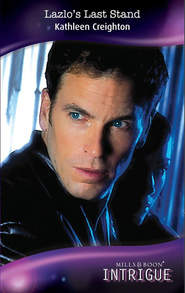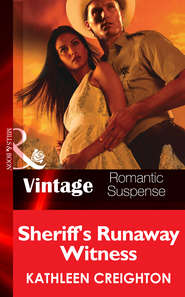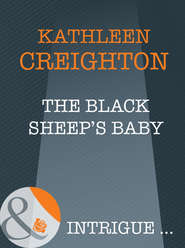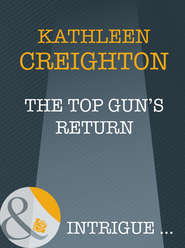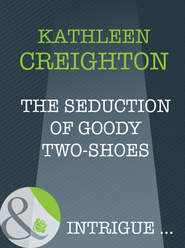По всем вопросам обращайтесь на: info@litportal.ru
(©) 2003-2025.
✖
Guarding The Soldier's Secret
Автор
Год написания книги
2019
Настройки чтения
Размер шрифта
Высота строк
Поля
Oddly, the thought had a calming effect.
Laila? They can’t take her. They will have to kill me first.
She drew in a long breath and let it out slowly. Think. You have one advantage: you’re a woman. They won’t be expecting resistance from a woman. Plus, they won’t want to touch you, a strange female, if they can avoid it. You know the moves—they won’t expect that, either. Strike fast, strike hard, break loose.
Then both of us run like hell.
They’d reached the outskirts of the bazaar. Beyond the human barricade that surrounded her, Yancy could hear cars moving slowly, tires crunching on the hard-baked ground. She could hear laughter, music coming from a car radio, the impatient beep of a horn. She wondered if one of those cars was meant for them. She imagined a sudden shriek of brakes, hard hands shoving her into a waiting vehicle, Laila screaming...
Or, infinitely worse, Laila being wrenched from her grasp. Then the slamming of car doors, a gunned motor and silence.
* * *
Twenty yards or so behind the odd clot of Afghan males in the otherwise free-flowing stream of midday traffic, Hunt Grainger maintained a relaxed and steady pace. Keeping anger in check along with surging adrenaline, he followed the phalanx’s every movement, gauging the situation, biding his time, waiting for the moment.
And still hoping this was going to turn out to be nothing more ominous than a tight-knit group of male shoppers oblivious to the two insignificant females in their path. Still hoping it wouldn’t be necessary to make himself known. He’d intended to do so eventually, of course, but at a time and place of his own choosing.
No, not this way. Not now.
The adrenaline was easier to deal with than the anger. He knew how to bank adrenaline, keep it focused and ready for the job at hand. He’d already assessed the odds of roughly ten to one, which didn’t trouble him particularly—he’d handled worse. Although admittedly not with a woman and child in the immediate proximity of the operation. That might complicate things.
Damn Yancy, anyway!
What was she thinking, bringing the girl back to Afghanistan? Hadn’t he made it clear to her how dangerous it was? If Zahra’s family found out...
That was the troubling thing. They obviously had found out. How? How could they know?
Although, he supposed, if he’d known, it was possible someone else could, as well. A world-famous network war correspondent couldn’t exactly keep a low profile.
The agency he’d hired to keep an eye on the two while he was out of reach had kept him informed of their travel plans, and he’d been watching them almost from the moment they’d arrived in the country. Admittedly that wasn’t so much because he feared for their safety. Not then.
Truth was, he’d simply wanted to see them again. Both of them. Nothing wrong with that, he’d argued with himself as he’d lain wide-awake and sleepless in anticipation of their arrival. Laila was his daughter, after all.
And Yancy... Hell, he wasn’t sure what Yancy was to him. Never had known.
What he did know was, it would be better for everyone if he could have stayed away, let them go on believing he was dead.
He’d told himself he’d look—that was all. Watch them from afar. Then let them go, never knowing.
It’s better that way. For now.
That was the plan. One of them, anyway. Maybe he would have been able to keep to it, maybe not. Now it looked as if he wasn’t going to have the luxury of choice.
His senses snapped to full alert when he noted what appeared to be a disturbance in the tight knot of men surrounding Yancy and Laila. The knot appeared to be unraveling. He quickened his pace, and several things happened in lightning-quick succession: One man seemed to stumble, then fall back against his comrades. This sent several to the ground in a tumble of flowing garments that might have been comical under different circumstances. Then two female figures, woman and child, broke free of the melee. They came straight toward him, running as if from the devil himself.
The woman’s face was a mask of grim determination; the child’s was blank with confusion. Hunt started forward, then halted when he saw the woman’s eyes focus, home in on his face. He saw her eyes go wide, first with fear, then with stunned recognition. He saw her stumble slightly, her body flinch and her face drain of all color.
Unexpected pain sliced through him.
Dammit, Yancy. Not like this—this isn’t the way I’d have chosen to break it to you.
An image came into his mind, one of those lightning flashes that stays on, seared into the memory like a brand.
...I’m strolling the boardwalk on the base with a couple of guys from my team, fresh off a successful mission with some leftover adrenaline to dispose of. Every soldier has his own way of dealing with it—that jacked-up reckless feeling you get sometimes when you’ve done your job and come back in one piece. Everything seems sharp and clear and simple. Life and death. You win or you lose. And that day we won. Life was good.
Times like that, some guys head straight for their laptops for a face-to-face with their families. A few go to the chapel, I guess. Me, I get a yearning for a little piece of home, so I hit the boardwalk and the same fast-food places I used to hang out in when I was a kid, growing up in the Midwest.
So my guys and I are debating the relative merits of subs, pizza and tacos, or whether we should go to Friday’s and have all three. And that’s when I see her. Them, actually—the news crew we’d picked up out of that firefight earlier in the day. They’re gathered around a table drinking something tall and cold, all scrubbed and shiny like they’ve just come from the showers. They still have that dazed look civilians get when they’ve had a closer look than they ever wanted at what war’s really like.
She’s impossible to miss, with that red hair of hers, the wind blowing it around like dark flames. I guess I’m looking at her pretty hard and maybe she feels that, because she looks up just then, straight at me, and I see her eyes go big and wide with that look that says she’s recognized me, too. I feel a kick underneath my ribs, which I chalk up to that leftover adrenaline, and I give her a nod. Maybe I smile at her, too.
I’ve worked my way through about half a foot-long meatball sub, joking with the guys across the table, when I hear, “Hey, soldier.” And here she is, sitting down beside me.
The guys, of course, they give me the eye, elbow each other and get up and move to another table.
She says, “I don’t mean to interrupt...”
I chew and swallow and reach for my napkin, wipe sauce off my face and clear my throat good. My heart’s doing the happy-dance and there’s nothing I can do about that, but I keep my voice polite and nothing more. “What can I do for you, ma’am?”
She winces and says, “Ma’am? Really?” and makes a face.
“It’s a term of respect—like sir,” I tell her. Something makes me add, “From where I’m sitting, you definitely do not qualify as sir.”
She laughs, and I feel a sizzling inside my skin, and I know I’m going where I’ve got no business going. I’m feeling hot and hard and I blame that on the adrenaline, too.
“I don’t know if I even said thank you,” she says. “For saving my—all...of our lives.”
She’s looking at me with big brown eyes, and it occurs to me her eyes seem to match her hair, which doesn’t make sense, because her hair is definitely auburn, and her eyes are definitely brown.
“You did,” I say.
She nods. “And you said you were just doing your job.” She’s studying me, and there’s this kind of a frown making lines between her eyebrows, like she can’t figure me out. Then she turns her face away, but I can see it tighten up and change color anyway. “That’s what it was to you, maybe. But to me it was a whole lot more. It was my life, you know?” She swipes her fingers across one cheek, clears her throat and adds, “And I want you to know I’m very grateful.”
I want to touch her, and I pick up my sandwich so I can’t. I take a bite, chew it, nod to the sandwich and say, “Glad I could help.”
I feel her staring at me again. Softly she says, “I wish I understood what makes someone like you tick.” I turn my head to look at her, and for a long time that’s what we do—look at each other. Or maybe it only seems like a long time. Then she sort of smiles and says, “I don’t suppose you’d consider—”
That wakes me up. “Not gonna happen,” I tell her.
Her smile goes a little sideways. “I was going to say, ‘I don’t suppose you’d consider having dinner with me.’”
“No, you weren’t.”
She doesn’t miss a beat, but leans closer and says, “What if I was?”
There’s a long silence while I listen to the voices in my head telling me things I already know, all the reasons I want but can’t have. Then, probably because I’m used to shaking hands with danger, I lean in closer to her and whisper, “It’d still be no.”
She sits back and the contact between us snaps like a rubber band pulled too tight—it stings a little. She tilts her head and asks, “Why?”






